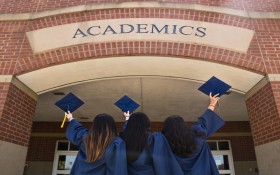Why is plagiarism a bad academic practice?
Plagiarism: What Is It?
When you offer someone else's words or ideas as your own, it is called plagiarism. Plagiarism is a form of intellectual theft. From purposeful cheating to unintentional copying from a source without attribution, plagiarism can take many different forms. Consequently, you must give credit where credit is due if you use someone else's words or ideas in your work. Transparency is necessary for ethical behaviour in the academic setting since it helps to provide credit to all original writers.
In addition to being bad scholarship, passing tests with the aid of someone else's work shows that they did not successfully finish the learning process. Because they must generate high-calibre work, students and academics must prevent plagiarism. Understanding the right citation and reference styles offers a means of entirely avoiding plagiarism.
Understanding what plagiarism is and how it appears is crucial. It's also critical to understand how plagiarism occurs. The development of effective academic skills is the last step. Because they lack the academic skills to avoid too heavily relying on the work of others or because they are unsure of what plagiarism is, many students who plagiarise do so unintentionally. Therefore, it's crucial to seize every chance to advance your academic abilities.
What Kinds of Things are Plagiarism Examples?
In addition to submitting an article you discovered online or hiring someone to produce a paper, there are numerous more forms of plagiarism. The following examples can assist students in avoiding unintentional plagiarism.
-
Totally Plagiarized
Complete plagiarism is when you copy a whole assignment verbatim from a third party and present it as your own. That includes handing in essays that were written by someone else or submitting papers that you found online. Complete plagiarism is the most severe type, and students frequently face the harshest penalties for it.
-
Direct Plagiarism
Direct plagiarism is when you copy entire sentences or paragraphs from another person's writing and use them in your own work. The assignment typically includes some of your original writing as well, as opposed to pure plagiarism. But taking content verbatim from outside sources and not crediting them is against academic plagiarism rules.
Sometimes, students make direct plagiarism mistakes. You risk mistakenly citing uncited work if you randomly insert quotes or data points into your essay without keeping track of the sources.
-
Phrases Used Without Citations
Plagiarism regulations at colleges prohibit rewriting someone else's words without giving credit to the original author. This involves modifying a few words in someone else's sentences and stealing ideas without giving credit. Fortunately, if you cite the source, paraphrasing is one of the simplest types of plagiarism to avoid.
-
Inaccurate Citations
Falsifying citations may appear insignificant in comparison to plagiarising entire paragraphs, yet it still counts as plagiarism. Making up quotes or data points constitutes a fake citation and is prohibited by plagiarism laws. Academic integrity rules are also broken when made-up citations are used for accurate information.
One of the most prevalent instances of unintentional plagiarism is the use of false citations. Always keep track of your sources so you can properly credit each one in your writing. Before submitting anything that can be considered self-plagiarism, check with your lecturer.
Scholars must learn to use sound academic practises early in their careers in order to entirely avoid plagiarism. Avoiding plagiarism is more complicated for students and scholars since they also need to determine whether the sources, they are using are reliable. One of the greatest strategies is for students to use their academic abilities to produce high-quality work; alternatively, they can contact companies that offer academic writing services. Additionally, they offer content with little to no plagiarism, correct author credit attestation, and the avoidance of self-plagiarism and deliberate plagiarism.
Only one Company in India, Griantek, works with IEEE publications and provides the best writing, publication, Ph.D. admission, and counselling services. We offer content that is free of plagiarism. In a sense, it's the first step you take to finish your Ph.D. Our Ph.D. admissions assistance in India makes sure that our clients are connected with the appropriate college. This isn't an issue for Griantek because we have connections with numerous approved and renowned universities that provide a range of degrees and specialties. Our services are precisely aligned with our goals, ensuring that our clients face no difficulties over the course of their studies.



